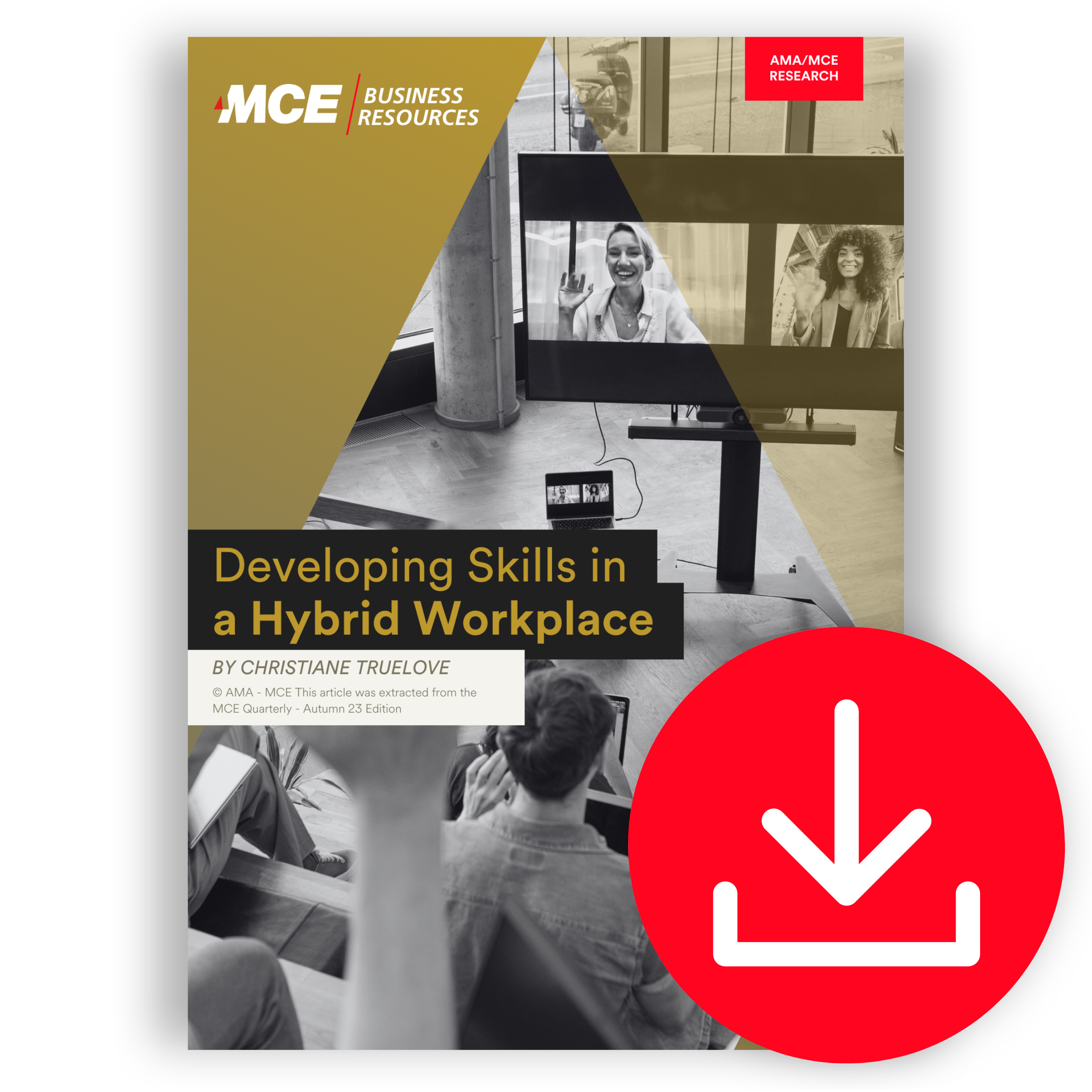
Hybrid and remote work options remain popular, but an AMA/MCE survey has found discrepancies in how men and women are benefiting from these work arrangements and the effects on team building.
The office has changed.
Several years after the pandemic emptied offices around the world, and about 300 years after the construction of the first “modern” purpose-built office building, desks remain stubbornly vacant, hovering around 50% occupancy of pre-COVID levels in major U.S. cities.
Despite high-profile efforts by companies such as Amazon and JPMorgan Chase to push return-to-the office policies, occupancy rates have barely budged in a year. The rise of hybrid and remote options represents a precipitous shift, affecting many millions of workers and significantly changing office culture. Most white-collar workers are staying close to home for at least part of the week, interacting digitally from dens, bedrooms, and coffee shops. Perhaps never again will it be normal for most people to commute five days a week.
Instead, organizations are engaged in a dialogue with their employees about when, where, and under what circumstances they fulfil their responsibilities. The notions of being in the same office, the same country, or even what it means to be an employee are being challenged. Rather than meeting in conference rooms and chatting by the coffee machine, the digital cloud has now become the connector for many. On the other hand, attending in-person meetings, having lunch with co-workers, or stopping by a leader’s office helps build relationships for those who are working in the office.
These changes are having a profound impact, one that organizations need to manage and adapt to. To get a better sense of the effects—particularly on women, but on workplace dynamics more generally—the American Management Association (AMA) and the Management Centre Europe (MCE) conducted a wide-ranging survey of 1,000 U.S. knowledge workers.
Respondents split roughly into thirds when reporting that they work in an office five days a week, three or four days, or two or fewer days, and there was a negligible difference between respondents and their supervisors. Surprisingly, for such a radical change, we received a lot of positive news.






